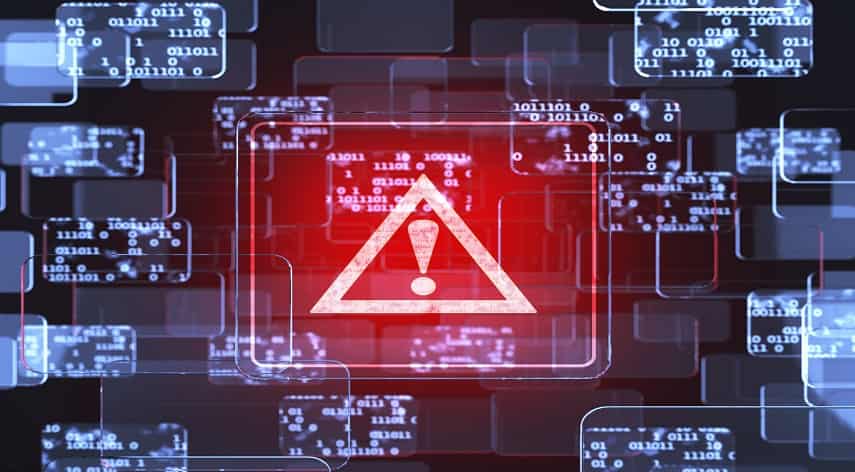7 Essential Cybersecurity Tips for Your Small Business

It’s common for small businesses to look at cybersecurity as an extra expense that is not important. Many don’t realize how cybersecurity needs to be a part of each and every business plan.
While it might be something that you need to address, it doesn’t mean it’s something you need to sit down and address today.
Read on for essential cybersecurity tips for your small business.
Table of Contents
Toggle1. Utilize Strong Passwords and Multi-Factor Authentication
For any small business, utilizing strong passwords and multi-factor authentication should be a basic necessity for cybersecurity.
Creating strong passwords should include various non-alphabetic characters. This should be at least 12 digits, with no personal information such as names, birthdays, and addresses. And don’t forget that it should be changed regularly.
Multi-factor authentication adds additional layers of security and helps protect accounts. Even if a password is stolen. Additional authentication can be done through SMS, apps, or fobs.
By creating complex, long passwords and implementing multifactor authentication, small businesses can increase the overall security of their accounts and networks.
This protects them against possible breaches. Implementing these two safeguards can be simple and effective. It can also help ensure that all data is secure and stay within the organization to which it belongs.
2. Regularly Back Up Important Files and Data
Regularly backing up important files and data is an essential cybersecurity tip for your small business. This will ensure that if anything happens to your computer systems, such as a virus or hack, your precious data is safe.
Schedule regular backups for any critical files. Also, make sure that your backups are securely stored offline to protect them from digital threats.
Automating your backups can help simplify the process and make sure that it is done consistently each week or month. Remember to test your backups periodically to make sure that you can access them in a pinch. Finally, make sure that your backup systems are secure with appropriate access permissions.
3. Install Firewalls and Anti-Virus Software
As a small business owner, it is essential to install firewalls and antivirus software. This is to protect your data from malicious attacks. Firewalls will help block malicious attempts to gain access to your systems. While antivirus software will help detect, quarantine, and remove malicious threats.
Small businesses should also keep their software up to date in order to decrease the chances of attack. Additionally, encrypt data and use reliable remote access and backup methods to ensure security. Finally, it is essential to educate staff and other users on cybersecurity.
By training staff to detect, report and identify scam emails, social engineering attempts, and potential threats, they become an extra line of defense against attack. By following these essential cybersecurity tips, small businesses can improve their defenses against malicious threats.
4. Update Your Operating System Regularly
This is one of the essential cybersecurity tips for your small business. Running an outdated system increases the risk of your network being infiltrated by malware and ransomware. In addition to installing security patches, updating your OS helps combat these threats.
When a new OS version is released, it often includes improved security features. They are specifically designed to protect against the latest threats. This provides your business with an even higher level of protection.
Updating your system regularly also helps ensure that your applications remain current with the latest version, minimizing the risk of exploitation from malicious actors. Finally, implementing automatic updates can ensure that your system is always kept up-to-date and secure.
5. Secure your Wi-Fi network with a VPN
Small businesses rely on their WIFI networks more than ever before, which makes it more imperative than ever to secure them. One of the best ways to achieve this is to use a VPN.
A VPN encrypts data as it passes through your WIFI network and prevents any unauthorized or malicious individuals from eavesdropping on your activities.
This helps ensure that your sensitive data remains secure and safe from cyber-attacks and data leakage. In addition, a VPN ensures that your network traffic remains anonymous. This means that you won’t be an easy target for hackers or data thieves.
Furthermore, using a VPN can also improve your network speed, as it prevents your data from being bogged down by intrusive traffic.
6. Encourage Employees to Follow Best Practices
It is essential to have an understanding of the latest cybersecurity best practices and to be able to educate your employees on how to use them. It is important to have your employees know not to reuse passwords, create strong passwords, and use two-factor authentication on all accounts, when available.
Additionally, make sure your employees are aware of the risks of phishing and social engineering attacks, and always double-check before clicking a link or replying to a message.
Educating your employees on best practices for passwords, secure browsing, and secure social media use will go a long way toward keeping your business secure.
Furthermore, always make sure that your employees are only accessing data from secure networks and are taking extra steps, such as the use of encryption, to secure the data. Finally, remind your employees not to share any work-related passwords or data online, or on any personal devices.
7. Ensure Constant Monitoring & Update of Systems
Though your small business may not have the financial means to invest large amounts into cybersecurity, there are still a number of ways to help keep your data and systems safe. Ensuring constant monitoring and updating of systems is critical in reducing the threat of data breaches.
Performing regular system scans, running updates, and updating/securing remote access are all keys to protecting your business. Keeping critical software and applications up-to-date, hiring outside experts to run vulnerability tests, and setting usage policies are also important tips to consider. With that said, you may check more details on managed IT services.
Staying on top of the latest security news and applying any known patches or fixes can also be beneficial. All in all, proactive monitoring, maintenance, and updates are key elements in any small business cybersecurity strategy.
Cybersecurity Tips to Consider
Cybersecurity is vital for any business, small or large. By following the tips for safeguarding your business data, you can ensure that your business is well-equipped to fend off potential cyber threats.
Take action now and implement the essential cybersecurity tips outlined in this article to protect your business from potential data breaches. Together we can stay safe online.
Did you find this article helpful? Check out the rest of our blogs!
Alfred Williams, a distinguished business writer, navigates the corporate landscape with finesse. His articles offer invaluable insights into the dynamic world of business. Alfred's expertise shines, providing readers with a trustworthy guide through the complexities of modern commerce.
Recommended For You
Spread the loveThe name Broderick Bevineau makes you think of new ideas and starting your own business. Bevineau has made
Spread the loveThe popularity of Airbnb has paved the way for many entrepreneurs to build businesses in the short-term rental
Spread the loveCreating a well-designed and functional website starts long before coding begins. The prototyping phase is a critical step





